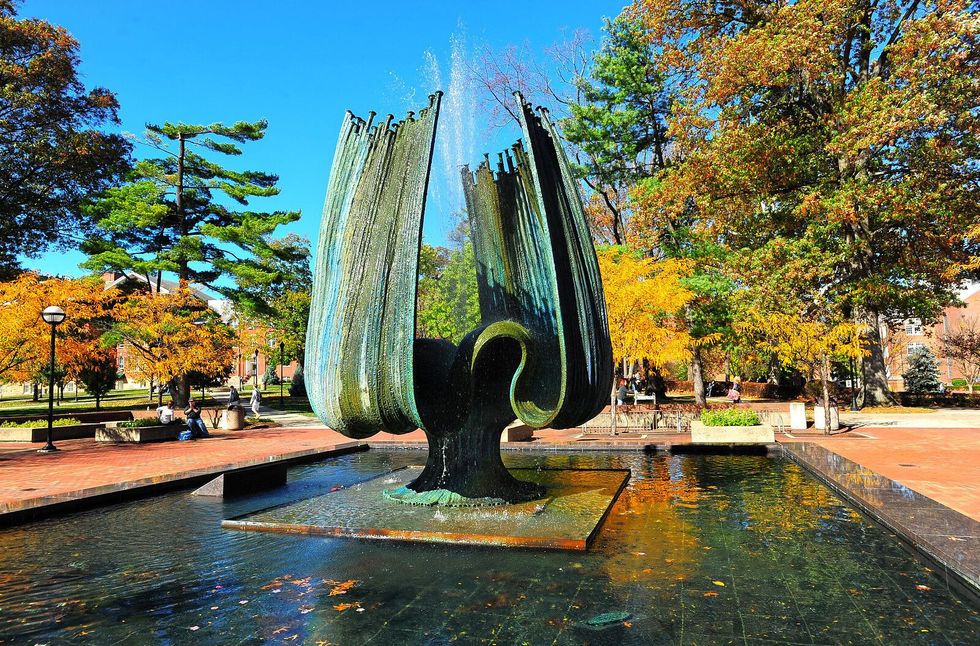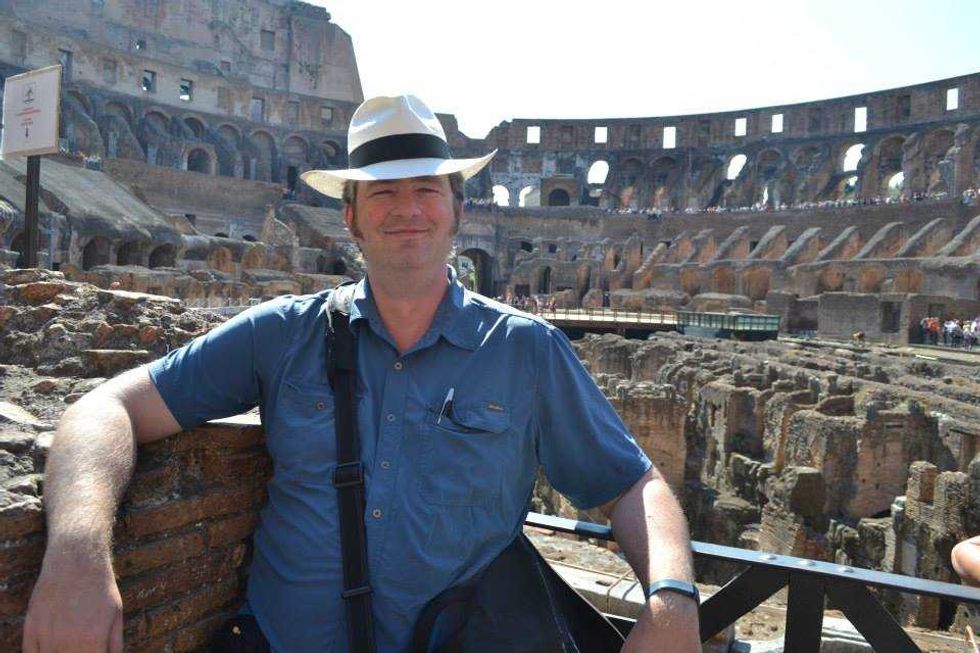This interview is brought to you by my Latin professor Dr. Del Chrol, whose passion for Latin and the ancient world is second only to his passion for people. Read his thoughts and learn from his wisdom as he discusses his experiences as a West Virginian.
Tell Me About Yourself.
"I'm in my twelfth year here, I came straight out of grad school and this was my first 'big boy' job. I graduated from University of Southern California in Los Angeles, not UCLA. When I came here, I was introduced as being from UCLA which is the big rival in town and that was delightful. 'Go fighting Trojans.' I graduated in 2006. I chose to come to Marshall because I really love teaching and USC is a very expensive school. It's somewhat a diverse school, too, because they have a lot of money to give as aid. There is sort of a straighter line across the different demographic groups as opposed to in a state school where there is typically a curve. But generally speaking, the people who are at USC were excellent at playing the "student game". And because they were excellent at playing the student game, it was difficult to feel like you were actually making a difference with people for whom education would be a liberating prospect. So when I came to Marshall and I met the students and I heard about the fact that a third of the students here are first generation college [it made] teaching here a lot more authentic, in that sense. Education is a liberating thing, not just in giving you opportunities of where to go job-wise, but also personally. I really felt like students here were better. Better to teach. Not necessarily better trained, but better to teach. So when I had my options of different places to go, this was the place I thought my skills would fit best."
What Do You Think It Means To be a West Virginian?
"Well, as an outsider, that is a very difficult question for me to answer. Both because I'm not from here and as an academic who has most of his friends at Marshall, most of us are not from here. To be a West Virginian, there is a certain quality of generosity of spirit and openness that seems to be pervasive here. But there are also two other sides to that, as well. One is that there are things certain communities of people are very deeply ingrained in and that is a large part of their personality. Like going some place and having somebody say, "what's your church home?", which is something I had never been asked before coming here. And then the other side of that too is because West Virginia has been the butt of jokes and corporate malfeasance for so many years, I think that there is a bit of the sense that that we're all underdogs here. And in a way we are, because of this is the state that has been neglected and abused, so I think that goes into the character here too."
How Do You Think People See Huntington and/or West Virginia?
"Well, Huntington in particular I think has been not been known for anything good. Because the way I would introduce where we are, [to other people] I would of course flash devil-horns and point to my watch and say, "okay, this is where we are," and I would get answers like, "well, is that in Virginia? Is that Western Virginia?" No, this is a different state. But the other side of that is "do you know that film We Are Marshall? Well, that is about Marshall." So being known for a plane crash and then now being known as the heart of the opioid epidemic, and when Melania Trump comes to your town, it's never a good thing. I think that when folks look at Huntington, they don't recognize what a neat place it is and how great the people are. I think that, from the outside, Huntington has all of those awful jokes and I think it goes into how Marshall is treated too. Let me tell an awful, little story. I'm in Rome teaching in the study abroad the final night and and I'm with my team teacher at a place where you go for breakfast every day that was also a bar. We were hanging out with the owners and these four young, college-age women come in and don't know how to ask for the bill. And that is a pretty simple thing, these people [the owners] didn't really speak English so were helping them out and it came up, "oh, where ya from?". "Well, we're from West Virginia," "me too, I teach at Marshall, actually." And they said, "OH, well we're from WVU," with a haughty laugh. So how long have you been here? Three weeks. So you're from the "better" of the two public institutions and you still don't know how to ask for the bill? And also, WVU doesn't have a Classics Department. Even within the state, there is this weird view of Huntington, with this 'north versus south' rivalry."
What Do You Wish People Knew About West Virginia?
"The level of warmth, the caring-ness, the openness, the sharing. I think people should know [about] that, as well as the really neat streak of people who do their own thing. One of the great things about being in a place where people don't really pay attention to you is there is interesting art, interesting music, some fun food, and a particular type of a sort of can-do attitude where people are coming up with new things because they can, and no one is telling them they can't. They can be creative because they don't necessarily have a lot of resources."
What Is a Fond Memory You Have of West Virginia?
"It's hard to disentangle them, but every time I have gone hiking with my wife at Pipestem or the more-than-a-couple anniversaries we have spent at Stonewall canoeing on the lake, there are times when being in what is not even exactly urban setting here makes you forget about the natural beauty so that is something I really love. Another thing something specifically in Huntington - a couple years ago when I was chair of Sexuality Studies, we brought Kristin Beck who is the first Navy Seal who was out as trans. I brought Kristin back to campus because I was fascinated by her story. Her book Warrior Princess was really engaging, as well as the new documentary about her called Lady Valor. And all these things I thought [were] really interesting about her, especially for people to think about here where we have such a strong military tradition. So I was initially very anxious about what might happen in having Sexuality Studies pay for a trans Seal to come to campus. And in fact, I had a run-in with our chief of police at Marshall, so I was anxious. I hired a police officer to be there because I was worried; but when we had the event, I [had to] set up an overflow room with video for people to watch the session. It was standing room only. It was packed. Every location was completely packed. There were no problems, so many people came out and shared their stories. It was such a moving experience to think of all these people who used this opportunity to either learn something new or have a voice. When I went to the police officer who had been kind of surly at being there initially at the end to tell him that he could go because we were finishing up, he said 'You think I can go talk to her?'. I said, 'Sure, why?', and he said, 'You know, I had one idea coming in here, but now that I have seen her and heard her and talked to her, I have a completely different idea'. It really heartened me because it was not what all the stereotypes that say what folks are like here."
Is There a Sentence, Phrase, or Thought You Would Like To Leave With the Readers?
"As Seneca said, 'Non scholae vitae discimus' - We learn not for school but for life. I would encourage people to remember that the university is a place for people to engage in the free exchange of ideas and exploration. The Latin word 'ludus' which means both 'game' and 'school' refers to any of these liminal places where people can explore who they are through taking different perspectives. Allowing for that openness to ideas is really important. When you go to a university, you are not going to learn a trade, you are going to learn who you are and be a good citizen."




















